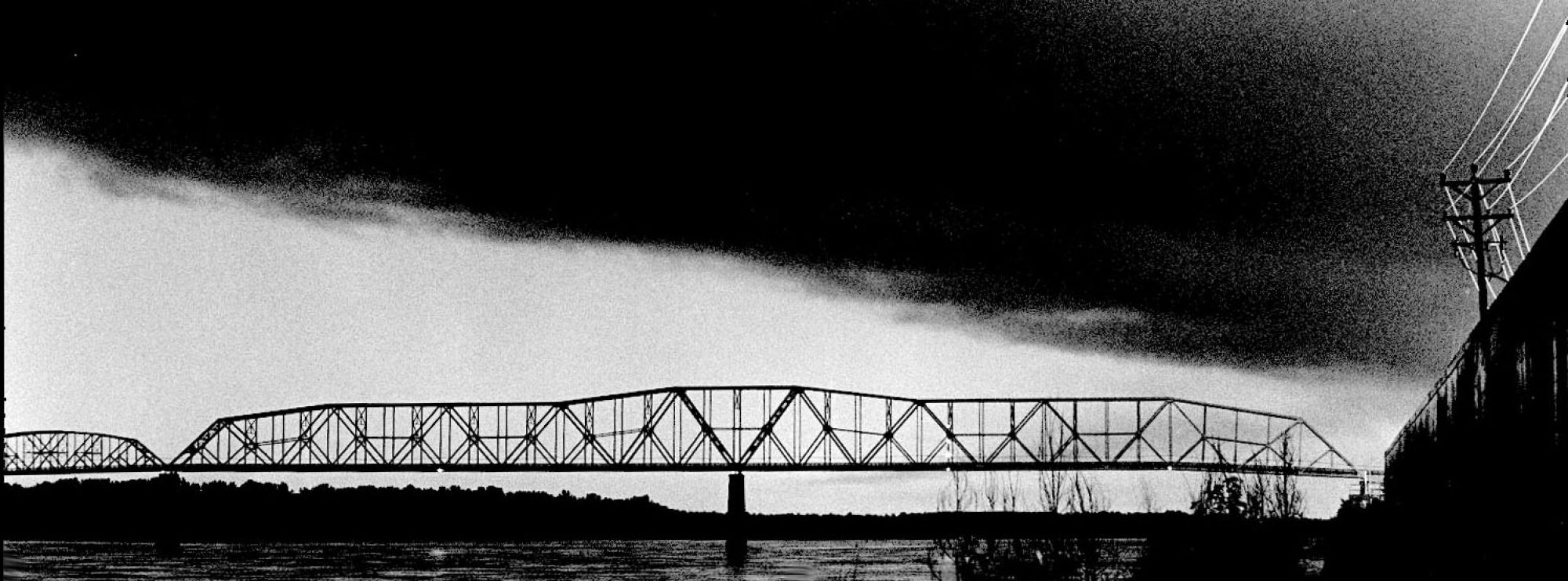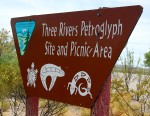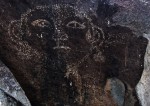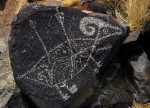It all depends on when you did it
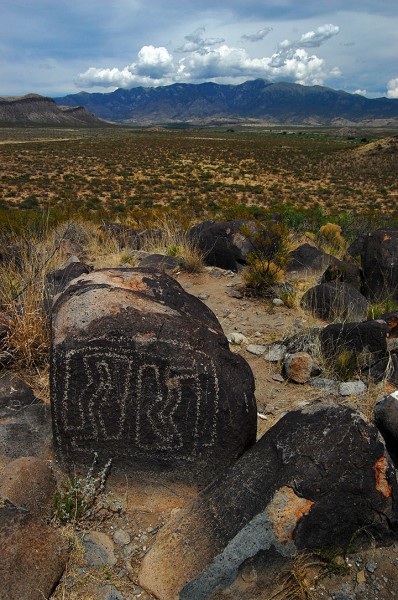 If it was on the side of a building in your neighborhood, it would be called “tagging” and you’d be annoyed.
If it was on the side of a building in your neighborhood, it would be called “tagging” and you’d be annoyed.- If it was high up on the side of a water tower, it would be called graffiti and you would lament the stupidity of kids.
- If it was scratched on a rock over 600 years ago, it is called a “petroglyph,” and there’s a whole site dedicated to to the art near Tularosa, N.M.
The Three Rivers Petroglyph Site
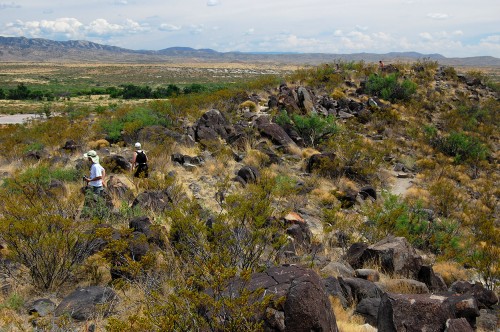 The Bureau of Land Management’s website says that the Three Rivers Petroglyph Site is one of the few locations in the Southwest set aside solely because of its rock art. It is also one of the few sites giving visitors such direct access to petroglyphs. The number and concentration of petroglyphs here make it one of the largest and most interesting petroglyphs sites in the Southwest. More than 21,000 glyphs of birds, humans, animals, fish, insects and plants, as well as numerous geometric and abstract designs are scattered over 50 acres of New Mexico’s northern Chihuahuan Desert. The petroglyphs at Three Rivers, dating back to between about 900 and 1400 AD, were created by Jornada Mogollon people who used stone tools to remove the dark patina on the exterior of the rock. A small pueblo ruin is nearby and Sierra Blanca towers above to the east.
The Bureau of Land Management’s website says that the Three Rivers Petroglyph Site is one of the few locations in the Southwest set aside solely because of its rock art. It is also one of the few sites giving visitors such direct access to petroglyphs. The number and concentration of petroglyphs here make it one of the largest and most interesting petroglyphs sites in the Southwest. More than 21,000 glyphs of birds, humans, animals, fish, insects and plants, as well as numerous geometric and abstract designs are scattered over 50 acres of New Mexico’s northern Chihuahuan Desert. The petroglyphs at Three Rivers, dating back to between about 900 and 1400 AD, were created by Jornada Mogollon people who used stone tools to remove the dark patina on the exterior of the rock. A small pueblo ruin is nearby and Sierra Blanca towers above to the east.
Why vacation photos all of a sudden?
I had a hard drive crash. I didn’t lose any data because of the way the system is designed, but I didn’t want to dip into my Cape photos until the “mirror” as it is called is completely rebuilt. (Hint: that’s why I keep bugging you to click on the big CLICK HERE button when you shop on Amazon. A few pennies here and there keep those hard drives spinning.)
Photo gallery of the art
Click on any photo to make it larger, then use your arrow keys to mover through the gallery. These photos were taken in June 2009, when we went back to the Southwest where Wife Lila grew up before moving to Cape.
